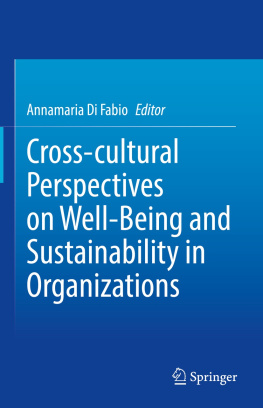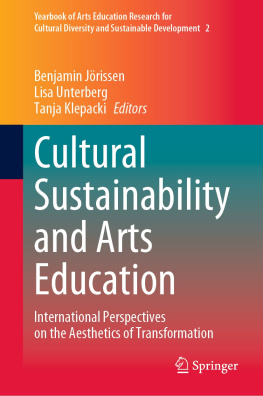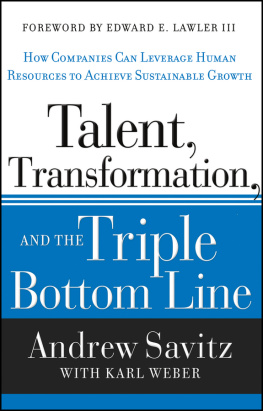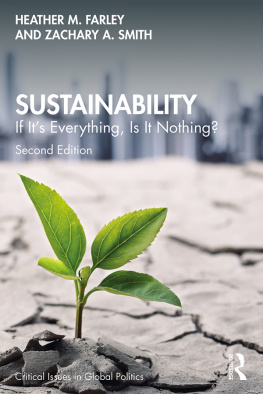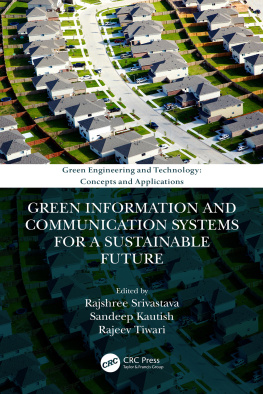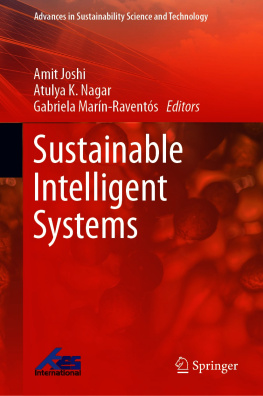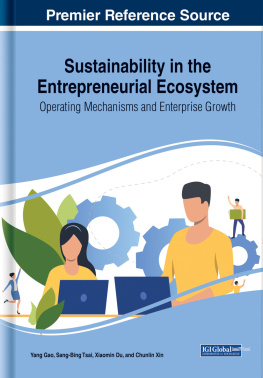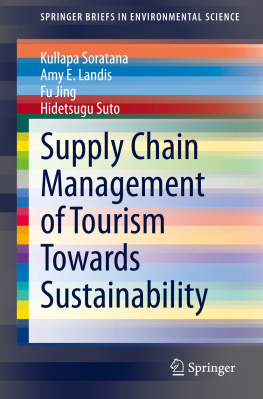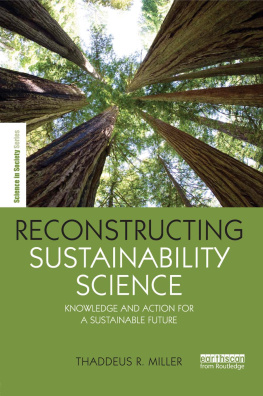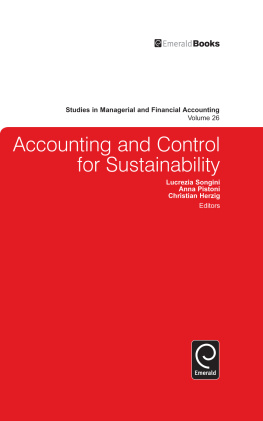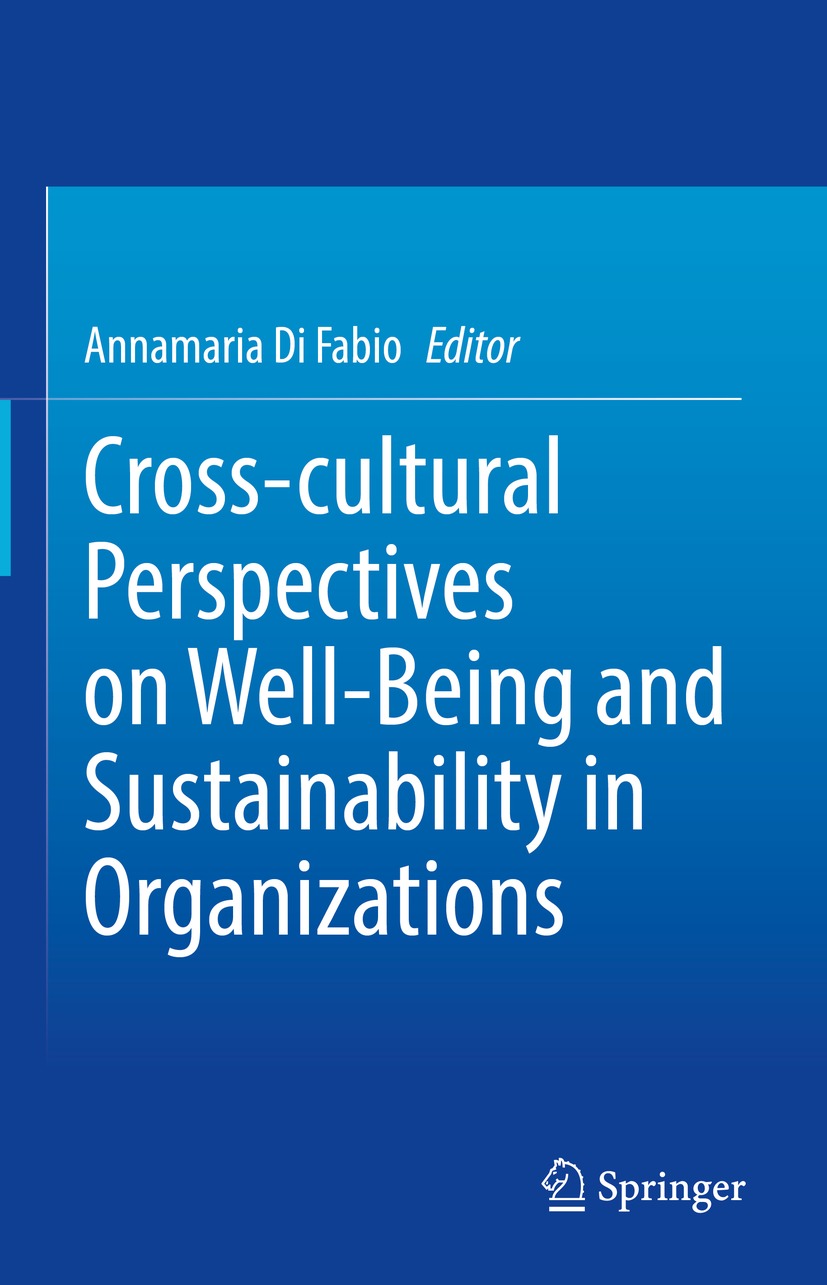Editor
Annamaria Di Fabio
Department of Education, Languages, Intercultures, Literatures and Psychology, University of Florence, Florence, Italy
ISBN 978-3-030-86708-9 e-ISBN 978-3-030-86709-6
https://doi.org/10.1007/978-3-030-86709-6
The Editor(s) (if applicable) and The Author(s), under exclusive license to Springer Nature Switzerland AG 2021
This work is subject to copyright. All rights are solely and exclusively licensed by the Publisher, whether the whole or part of the material is concerned, specifically the rights of translation, reprinting, reuse of illustrations, recitation, broadcasting, reproduction on microfilms or in any other physical way, and transmission or information storage and retrieval, electronic adaptation, computer software, or by similar or dissimilar methodology now known or hereafter developed.
The use of general descriptive names, registered names, trademarks, service marks, etc. in this publication does not imply, even in the absence of a specific statement, that such names are exempt from the relevant protective laws and regulations and therefore free for general use.
The publisher, the authors and the editors are safe to assume that the advice and information in this book are believed to be true and accurate at the date of publication. Neither the publisher nor the authors or the editors give a warranty, expressed or implied, with respect to the material contained herein or for any errors or omissions that may have been made. The publisher remains neutral with regard to jurisdictional claims in published maps and institutional affiliations.
This Springer imprint is published by the registered company Springer Nature Switzerland AG
The registered company address is: Gewerbestrasse 11, 6330 Cham, Switzerland
Foreword
Sustainability is an important challenge for humanity and is receiving a wide attention from international bodies, scientific disciplines, governments, NGOs and society in general during the last half a century. It has been briefly characterized as the capacity for continuance into the long-term future (Martin, 2003) although often different disciplines have provided their own definitions (ecology, economics, biology and sociology) focusing on specific facets. A comprehensive view of sustainability is lacking and the concept is becoming fuzzy and confusing (Faber et al. 2005). In an effort to provide a systematic and comprehensive view, the Brundtland Commission pointed out that, beyond the physical needs and economics, sustainability requires views of human needs and well-being that incorporate such non-economic variables as education and health enjoyed for their own sake, clean air and water, and the protection of natural beauty. It must also work to remove disabilities from disadvantaged groups, many of whom live in ecologically vulnerable areas (WCED, 1987).
Sustainable development is considered the process to achieve sustainability. Thus, the Brundtland Commission characterizes it as the development that meets the needs of the present without compromising the ability of future generations to meet their own needs (WCDE, 1987). Three main pillars of sustainable development are considered: economic growth, environmental protection and social equality. In practice, conceptualizations of sustainable development cover even a broader spectrum. Lozano (2008) has distinguished five types of conceptualizations: the conventional economists perspective; the non-environmental degradation perspective; the integrational perspective, i.e. encompassing the economic, environmental and social aspects; (4) the inter-generational perspective; and (5) the holistic perspective (Lozano 2008). More recently, Bolis, Morioka and Sznelwar (2014) developed a model with an axiological perspective. It proposes that sustainable development can be seen as development aimed at improving the well-being of society as a whole (including future generations), enabled by an axiological perspective in decision-making processes, considering the limitations of environmental resources. The model explicitly includes a value-based mindset in the concept of sustainable development (p. 7). It highlights the relation of sustainability with peoples well-being, considering also future generations, and emphasizes the decision-making processes with the tension between individual and functionalistic drivers on one end and the axiological collective driver on the other one. Then, the model considers subjective and emotional components and values such as cooperation, equity and equality, including a collective, intergenerational and axiological approach.
During the las decade, psychology has paid growing attention and awareness to the processes of sustainable development. In this way, the European Journal of Sustainable Development Research, in an editorial article recently published (Di Fabio and Rosen, 2018), declares a new frontier consisting in opening the black box of Psychological Processes in the science of sustainable development.
The UN General Assembly approved, on 12 September, 2015, the Sustainable Development Goals and the agenda 2030. The goals aim to stimulate action in the five critical areas: People, Planet, Prosperity, Peace and Partnership. The declaration included 17 goals with 169 targets establishing, for the first time, shared goals concerning all the countries around the world and not just the developing ones, as it was the case for the Millennial Goals. This has been seen as a novel approach of global governance by goal setting (Biermann, Kanie & Kim, 2017). They are integrated and balance the three dimensions of sustainable development. The goals are primarily included in one of the five P areas: People (goal 1: No poverty; 2: Zero hunger; 3: Good health and well-being; 4: Quality education and 5: Gender equality), Planet (goals 6: Clean water and sanitation; 12: Responsible consumption and production; 13: Climate action; 14: Life below water; and 15: Life on land), Prosperity (goals 8: Decent work and economic growth; 9: Industry innovation and infrastructure; 10: Reduced inequalities and 11: Sustainable cities and communities), Peace (goal 16: peace, justice and strong institutions) and Partnership (goal 17: partnership for the goals).
Organizations and work are then explicitly dealt with in goal 8 and are mentioned in several targets of different goals. The goal 8 aims to promote sustained, inclusive and sustainable economic growth full and productive employment and decent work for all. Its targets include issues such as decent job creation, entrepreneurship, creativity and innovation, and encourage the formalization and growth of micro-, small- and medium-sized enterprises. They also aim to achieve full and productive employment and decent work for all women and men, including for young people and persons with disabilities, and equal pay for work of equal value. Moreover, they pursue to reduce the proportion of youth not in employment, education or training

